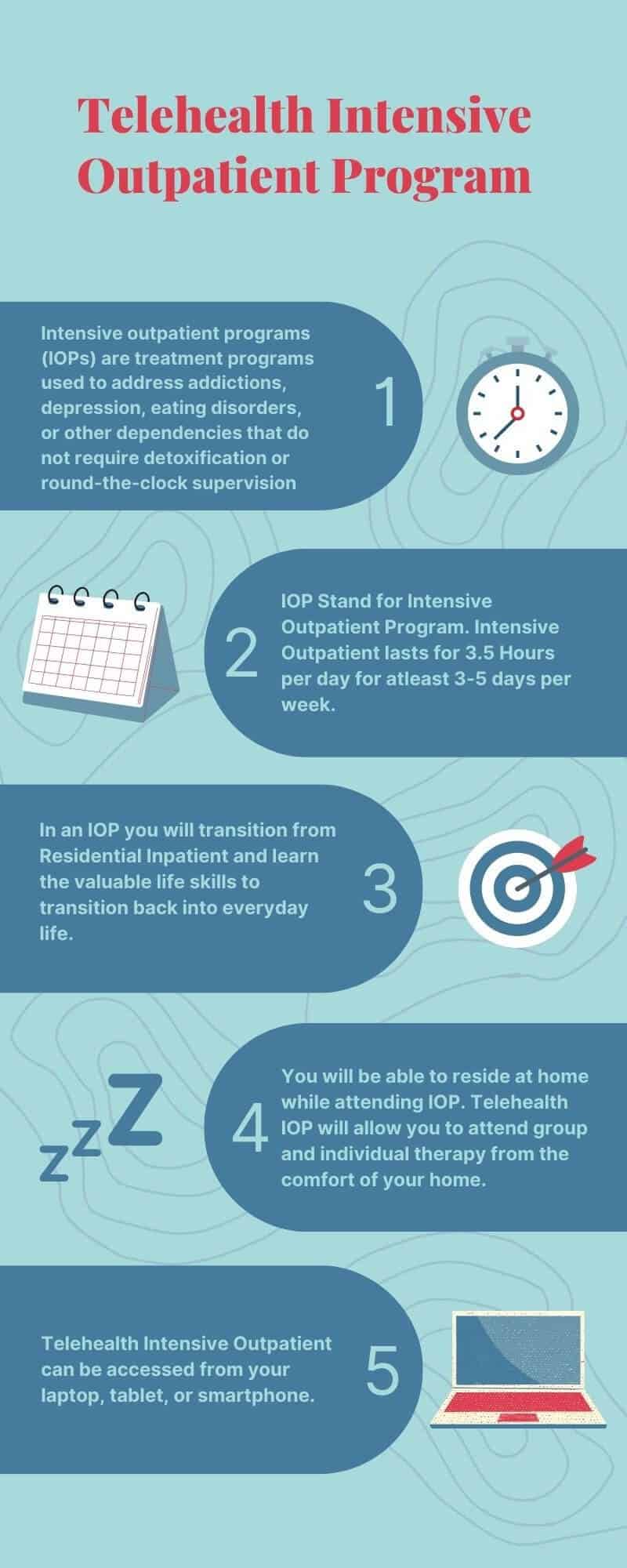Navigating the Intricacies of Twin Diagnosis Treatment Within an Extensive Outpatient Program Establishing
In the realm of mental health and wellness and addiction therapy, the junction of twin medical diagnosis provides a nuanced challenge that demands a comprehensive and customized technique. By checking out the complexities of twin medical diagnosis therapy within this intensive outpatient context, a more clear course arises in the direction of alternative and lasting recuperation for those grappling with these linked difficulties.
Double Diagnosis Introduction

Understanding twin diagnosis is important as it requires a thorough and integrated technique to therapy. By acknowledging the interaction in between substance use and psychological health, medical care suppliers can customize interventions to satisfy the one-of-a-kind needs of each person. This holistic method not only addresses signs but also targets hidden factors that add to the dual diagnosis.
In addition, neglected double medical diagnosis can bring about a cycle of regression and intensifying mental health and wellness signs. By identifying the intricacy of twin diagnosis and providing specific care, health care experts can sustain people in attaining long-term healing and enhanced psychological health.
Tailored Therapy Strategies
Identifying the complex interplay between material use disorders and psychological wellness conditions, the growth of customized therapy strategies is paramount in addressing the complexities of twin diagnosis in mental health therapy. Customized therapy plans are customized techniques that think about the distinct needs, difficulties, and goals of individuals encountering twin medical diagnosis. These plans are developed collaboratively by a multidisciplinary team of professionals, including psychoanalysts, psycho therapists, social employees, and addiction specialists, to ensure thorough and incorporated treatment.
Tailored treatment strategies typically involve a combination of treatments, medicines, and behavioral interventions that target both the material usage disorder and the psychological health and wellness condition all at once. These strategies may include cognitive-behavioral therapy, dialectical behavior modification, medication-assisted therapy, individual therapy, group therapy, and family members therapy, amongst other evidence-based treatments. By personalizing therapy techniques to individual situations, customized plans can deal with the origin of double diagnosis, advertise long-lasting recovery, and boost overall lifestyle for individuals battling with co-occurring disorders.
Integrated Care Strategy
An integrated treatment strategy in dual medical diagnosis treatment integrates clinical, psychological, and social treatments to resolve the complicated demands of individuals with co-occurring compound usage disorders and mental wellness problems. This approach recognizes that treating one element of a double medical diagnosis without attending to the other can bring about inefficient results. By incorporating clinical interventions such as medicine administration for psychological health conditions with mental treatments like cognitive-behavioral treatment for material use conditions, individuals get thorough care that targets all facets of their double medical diagnosis.
Moreover, the social element of integrated care includes resolving environmental aspects that might add to the growth or perpetuation of material usage and psychological wellness concerns. This can consist of family members characteristics, housing instability, or lack of social support. By incorporating social interventions like household treatment, vocational find more info support, and community resources, the treatment comes to be more holistic and customized to the person's details needs. Overall, an incorporated care approach in dual diagnosis treatment within an extensive outpatient program setup intends to offer extensive, reliable, and customized like people encountering co-occurring conditions.
Difficulties in IOP Establishing
In the context of dual diagnosis treatment within an intensive outpatient program, browsing the intricacies of co-occurring compound usage problems and psychological health and wellness conditions presents significant challenges. One of the main hurdles in the IOP setting is the control of care between mental health experts and substance misuse experts to guarantee a detailed treatment approach. This calls for reliable communication, collaboration, and a deep understanding of exactly how these problems engage and influence each other.

In addition, dealing with preconception and resistance to treatment within the IOP setup can hinder progression. Some individuals may be reluctant to divulge their dual diagnosis or may really feel ashamed, hindering their involvement in the therapeutic procedure. Getting over these obstacles requires a helpful and non-judgmental setting that promotes depend on and visibility.

Collaborative Expert Initiatives
Effective double medical diagnosis therapy in an intensive outpatient program demands smooth collaboration among mental wellness specialists and drug abuse experts to make certain a comprehensive and integrated approach to care (Intensive Outpatient Program (IOP)). This cooperation is important to attend to the intricate interplay in between mental health problems and chemical abuse, as both elements require to be dealt with simultaneously for successful end results. Mental health professionals bring experience in identifying and dealing with psychological health and wellness conditions, while chemical abuse specialists have actually specialized expertise in addressing addiction issues. By working internet with each other, these experts view it can produce individualized treatment plans that satisfy the special demands of each individual, taking into consideration both their psychological health and compound abuse challenges.
Joint initiatives likewise reach routine interaction and info sharing among team participants to guarantee a natural therapy approach. This may include situation conferences, joint sessions with the patient, or shared documents to track development and readjust treatment techniques as needed. Furthermore, collaboration might include entailing other medical care professionals such as health care physicians or family specialists to offer alternative support to the patient. Inevitably, a united front of specialists functioning together improves the performance of dual diagnosis therapy within an extensive outpatient program.
Conclusion
To conclude, efficient dual diagnosis treatment within an intensive outpatient program setting calls for customized treatment strategies and an incorporated treatment method. Challenges may arise in this setting, yet joint initiatives amongst experts can help navigate these intricacies. By attending to the special requirements of people with co-occurring psychological health and compound use problems, IOP programs can provide thorough and holistic like sustain recovery and total well-being.
Comments on “Why an Intensive Outpatient Program (IOP) is Necessary for Enduring Healing.”